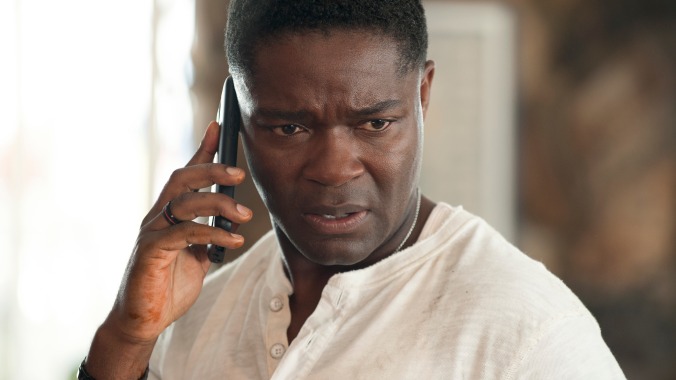A time-traveling phone call is the most convincing part of Don’t Let Go

When Los Angeles homicide detective Jack Radcliff (David Oyelowo) starts getting phone calls from his beloved niece, Ashley (Storm Reid), it comes as a shock. Not that the two haven’t been close; time and again, he has stepped in to act as a surrogate for his brother, Garret (Brian Tyree Henry), a bipolar musician with a history with the law. But Ashley has been dead for weeks, gruesomely murdered along with her parents and the family dog by parties unknown. In fact, it was Jack who found their bodies.
However, Ashley isn’t calling from the great beyond—just the past, days before she and her family were killed. And so, having ruled out the possibility that he might be the victim of an elaborate hoax (and without addressing the obvious alternative, which is that he’s totally lost it) by establishing that changes in Ashley’s timeframe carry over into his own, Jack sets off to undo the murders and identify the perpetrators. All the while, he keeps his teenage niece in the dark (she thinks she’s been drafted into a super-secret mission by her cool uncle) and makes sure she never crosses paths with his past self.
Why does he do this? Why doesn’t he just, say, ask Ashley to hand the phone to her parents and tell them that they’re in mortal danger, possibly from his brother’s former criminal associates, and that they should hightail it out of town until everything blows over? Why not have her take pictures instead of trying to describe or write down clues? (Even if the time-warp connection between their phones has a talk-only plan, it’s established early on that Jack has access to the contents of Ashley’s phone in the present.) Why not get himself involved?
Perhaps it’s because these possibilities belong in a thriller that is both loopier and less muddled than what writer-director Jacob Aaron Estes (Mean Creek) has come up with here. If the press notes are to be believed, Don’t Let Go has undergone substantial re-editing since it premiered to negative reviews at this year’s Sundance under its original title, Relive. Of course, there’s something funny about the idea of a time-travel thriller getting a do-over after the fact. Reportedly, that initial version was bleaker, and the finished product has some of the characteristics of a salvage operation: essential parts of the story (like the fact that Jack’s colleagues believe Garret killed his own family in a murder-suicide) seem to have been swept to the side, while other, more rudimentary plot points are over-explained.
This is the kind of film where the hero needs calendars and calculations to do mental math, and where the logic of the time-bending premise (which is actually quite straightforward) inspires less incredulity than the central murder mystery—and that’s before a reputed, never-photographed criminal mastermind with the unlikely name of “Georgie” enters the picture. Apart from a cast that is generally too good and comfortable for the writing (including Mykelti Williamson as Jack’s partner and Alfred Molina as their garrulous boss) what keeps Don’t Let Go watchable is, ironically, its predictability: the cop-movie clichés, the shootouts, the mishandled evidence, the bargain-bin twists. The future—or, in this case, the past—might be unwritten, but Don’t Let Go, like so many generic thrillers before it, operates by the book.